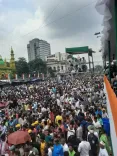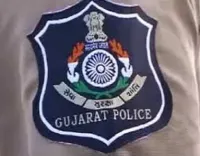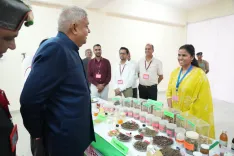Did UNSC Criticize Pakistan Over J&K Terror Attack?

Synopsis
Key Takeaways
- UNSC reprimands Pakistan regarding the Pahalgam attack.
- 26 people were killed in the terrorist incident.
- Calls for dialogue and restraint were emphasized by the UNSC members.
- Secretary-General Guterres warned against military escalation.
- The Resistance Front claimed responsibility for the attack.
United Nations, May 6 (NationPress) The United Nations Security Council (UNSC) has reprimanded Pakistan and posed critical inquiries regarding the recent terror attack in Pahalgam, Jammu and Kashmir, during its closed-door session, as tensions between New Delhi and Islamabad continue to rise, according to reports.
The members of the council expressed their condemnation of Islamabad and scrutinized the involvement of the Lashkar-e-Taiba, a group based in Pakistan, in the Pahalgam incident that resulted in the deaths of 26 individuals.
While Pakistan asserted that the meeting met its objectives, reports indicate that it was largely ineffective.
During the session, convened at the request of Pakistan’s Permanent Representative Asim Iftikhar Ahmad, he denied his country's involvement in the terrorist act.
Although the consultation was closed and lacked official records, UNSC members advocated for dialogue and restraint to address the ongoing issues.
Following the meeting, UNSC President Evangelos Sekeris informed the press, "The Security Council is always supportive in such initiatives" aimed at de-escalation. He emphasized that the council holds the responsibility for such efforts and described the meeting as both productive and beneficial. Due to the closed nature of the meeting, its discussions remain confidential, without official documentation.
Assistant Secretary-General Mohamed Khaled Khiari, who provided a briefing during the meeting, indicated a shared desire for de-escalation. Russia’s Deputy Permanent Representative Anna Evstigneeva, present at the meeting, expressed hope for reducing tensions.
Secretary-General Antonio Guterres remarked that the situation is at a "boiling point" and urged both nations to "step back from the brink."
He added, "It is critical -- particularly at this urgent moment -- to avert a military conflict that could easily spiral out of control."
In a strong condemnation of the terrorist massacre that took place in Pahalgam last month, he stated, "I fully understand the intense emotions following this horrific attack."
Importantly, The Resistance Front (TRF), affiliated with the Pakistan-based Lashkar-e-Taiba, claimed responsibility for the attack, which resulted in the deaths of 25 Indians and one Nepalese national.







